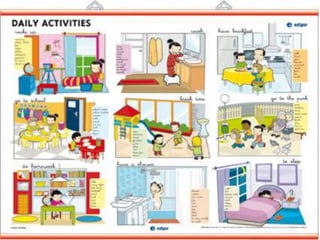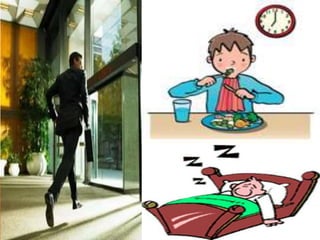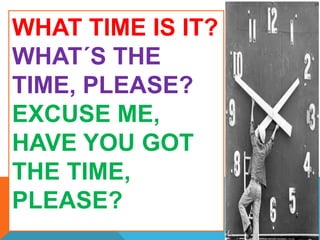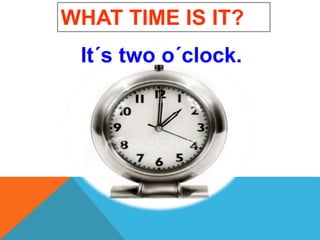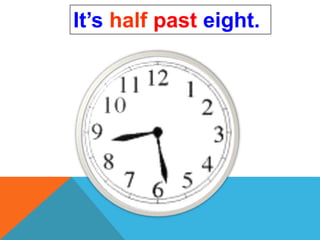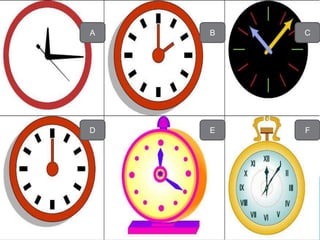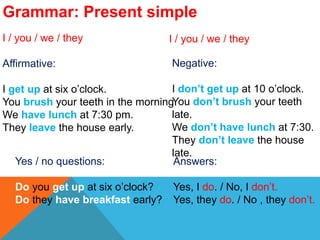simple present
- 5. WHAT TIME IS IT? WHATÂīS THE TIME, PLEASE? EXCUSE ME, HAVE YOU GOT THE TIME, PLEASE?
- 6. 12 10 9 3 6 1 2 4 7 5 8 11 A QUARTER OÂīCLOCK A QUARTER HALF PAST TO
- 7. WHAT TIME IS IT? ItÂīs two oÂīclock.
- 8. Itâs half past eight.
- 9. Itâs a quarter past seven. http://www.englishmedialab.com/beginnervideos/time/time.html
- 10. ItÂīs quarter to one. http://www.englishmedialab.com/beginnervideos/time/time.html
- 11. A B C D E F
- 12. G H I J K L
- 14. Grammar: Present simple I / you / we / they Affirmative: I / you / we / they Negative: I donât get up at 10 oâclock. You donât brush your teeth late. We donât have lunch at 7:30. They donât leave the house late. I get up at six oâclock. You brush your teeth in the morning. We have lunch at 7:30 pm. They leave the house early. Yes / no questions: Do you get up at six oâclock? Do they have breakfast early? Answers: Yes, I do. / No, I donât. Yes, they do. / No , they donât.
- 15. Routines: I watch the news. What time do you get up? Time: What do you usually do in the morning? I get up at 7:00 am. Places: Where do you study? I study at university.
- 16. 1. Susan and Peter _________ the house early. ( leave ) 2. I _____________a pet. (not / have ) 3. ______ you _______ breakfast? ( have ) 4. My friends_______________ in Lima. ( not / work ) 5. My sisters _____________ marinera. ( dance ) 6. They ___________ early. ( get up ) 7. We ______________ Chinese. ( not / speak ) 8. _______ Anne and Kevin _____to work? (go) 9. _______ you and Sofia ______ lunch here? (have) 10.Her cousins _________ in Lima. ( live )

